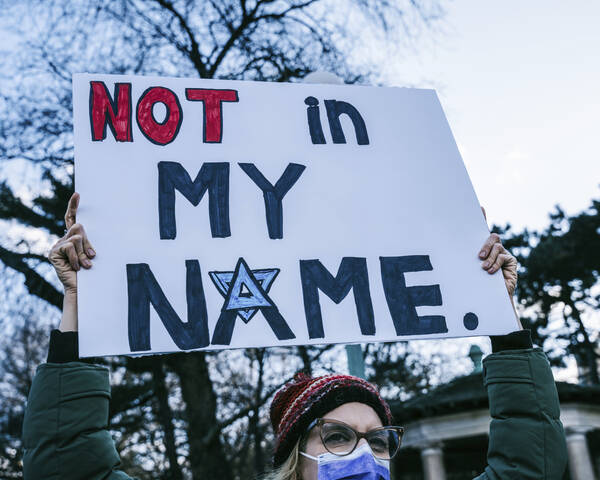Letters / On “Recent Polls of US Jews Reflect Polarized Community”
Caroline Morganti’s June 29th piece on polling of American Jews reported on the polarization of the community as a whole, depicting a population deeply divided in its opinions on Israel/Palestine. This polarization is also present on a local level in Portland, Oregon, according to a recently completed study of the community conducted for the local Jewish Federation by Brandeis University’s Center for Modern Jewish Studies. But the study also includes some surprises, including in the answers to a direct question about whether respondents identify as Zionist, one that Morganti has found is rarely posed to a national Jewish population. A majority of the Portland area’s adult Jews are not Zionists, and a majority are not at all or only minimally attached to Israel.
The study found that only 26% of Jewish adults identify as Zionists; 52% are not Zionists (the other 22% are unsure or prefer not to say). Among Jewish adults, 55% feel not at all (23%) or not too attached (32%) to Israel. Only 18% feel very attached to Israel; 28% feel somewhat attached. The report doesn’t explain why nearly twice as many Portland Jews feel attached to Israel than are Zionists. One answer may be that “attached” does not necessarily mean “supportive,” given that 34% of those who have lived in Israel do not identify as Zionists.
In Portland, Birthright and travel to Israel do not seem to have their intended effect. In the 18–34 age group, 59% have traveled to Israel, 45% through Birthright. But only 38% of that age group feel somewhat or very attached to Israel, while a 63% majority feel not at all attached (17%) or not too attached (46%) to Israel. Among Jewish adults, 97% consider it important for Israel to be a democratic state, while 65% consider it important for it to be a Jewish state—more than double the number who identify as Zionists. This might mean that some people who don’t believe that Israel ought to be the center of Jewish life nonetheless believe it is important that Israel exist to provide a refuge for Jews in distress. It could also mean that some people who want Israel to be a Jewish state feel uncomfortable with or are unsure about the connotations of the term “Zionist.” Since the only options offered were “democratic” or “Jewish,” we don’t know how many people may consider it important that Israel be a “state of all its citizens.” A majority of 58% do not believe Israel “lives up to its values with respect to human rights.”
Though supporters of Palestinian rights have become more visible in several local congregations over the last five years, the public stances of the Jewish Federation of Greater Portland on Israel do not reflect the views of the majority of the community. Federation leaders have been antagonistic to individuals and congregational officials who publicly deviate from the knee-jerk pro-Israelism that animates most legacy Jewish institutions. So far, the Federation hasn’t commented publicly about the gap between its official positions and the actual views of Portland area Jews on Israel/Palestine—nor has it committed itself to better reflect the views of the constituency it claims to represent.
Portland, OR
The letter writer is an emeritus professor of Middle East history at Stanford University.
